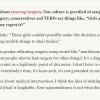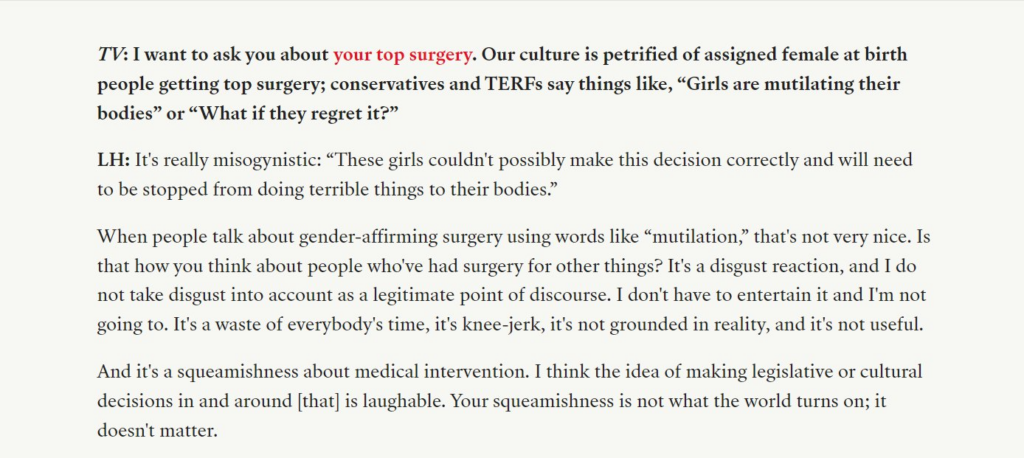Originally a comment by Artymorty at Miscelllany Room.
I wish there was one single all-encompassing, factual, non-polemical book about this. So far, there isn’t one. (But I’ll be honest: I’d love to write one myself.)
Helen Joyce’s book Trans: When Ideology Meets Reality is fantastic — analogous to Dawkins’s The God Delusion in the sense that it’s a broad overview of the definition of trans and how the concept is not backed by science — just like Dawkins did with the concept of God.
But Joyce’s (excellent) book sticks to the facts, and lacks a broader analysis of the social and political context, which has so much to do with why this nonsense idea has become so popular so quickly.
Here, Kathleen Stock steps in and takes a feminist-philosophical view in her book Material Girls. (Which — I know, I’m a horrible monster, kill me now — I have only started and haven’t finished. So I can’t really speak to this one too much.)
For a pre-social-media perspective on specifically male transsexualism, transgender identity, and homosexuality, and the connection between them, Bailey’s The Man Who Would Be Queen is very good. (And it’s available as a free PDF now, with the author’s blessing.)
And then there’s Bailey’s spiritual sequel of sorts, Galileo’s Middle Finger by Alice Dreger, which mostly focuses on the controversy surrounding Bailey’s book, and which launches from there into the subject of ideology and activism and how those forces interact with the pursuit of science, for better or for worse. (Very interesting, enlightening and engaging stuff.)
In Tough Crowd, Graham Linehan writes movingly about trans from the perspective of the social media landscape and what it’s like to be a celebrity who dissents from the liberal consensus and who dares to blaspheme about the topic. (I’m biased towards this book because I had a hand in its creation, and because Graham is one of my closest and dearest friends. We’re colleagues, too: we host a long-running, popular YouTube podcast together. But all bias aside, the book has been a runaway bestseller because the consensus is that it’s a brilliant, hilarious, and moving read.)
Dr. Az Hakeem has written two books from the perspective of a therapist who has seen first-hand that there’s a way for virtually all (98%) young people who are convinced that they need trans identities and sexchange surgeries that they can climb down from that belief and reconcile their minds with their bodies. His latest is the newest of the bunch of high profile trans books, and I haven’t read it yet, but I hear it’s very good.
I myself have taken a stab at a broad-overview essay, which imagines its reader as an otherwise uninformed liberal progressive looking to get a foothold into this subject. A Cliff’s Notes primer. My essay tries to pare this incredibly complex topic down to a few basic, digestible concepts to a reader who is otherwise hostile to gender-critical ideas. Here it is.
There’s no one way into this mess of a topic, and there’s no single, universal story that comes close to capturing it — yet. But I puzzle every night and day over whether such a solution is possible, in the way mathematicians and chessmasters probably puzzle over abstract theorems. I want so badly for there to be some kind of elegant, simple solution: an easily deployed explanation I can use to break my erstwhile friends free of the spell of gender madness. It’s a cult, and it’s stolen my life away because it’s stolen virtually all of my friends and colleages, and I keep wishing for some kind of science-fiction code word that will break them all out of the spell, like Angela Lansbury’s Queen of Diamonds playing card in The Manchurian Candidate — only in reverse: to break someone OUT of a mind-control trance, instead of inducing one.
There’s gotta be a solution out there somewhere that will solve this problem! Something to stop the madness!
Until we find one, I hope the recommendations come in handy for you.




